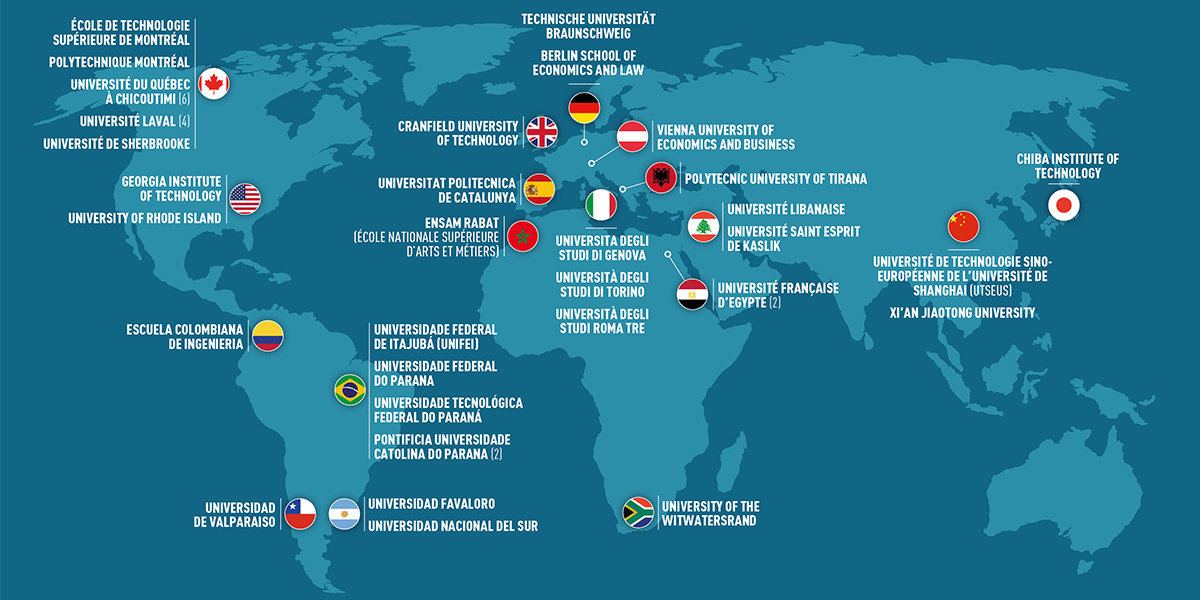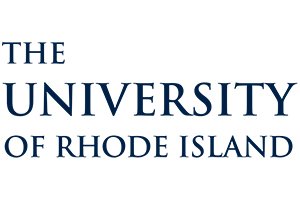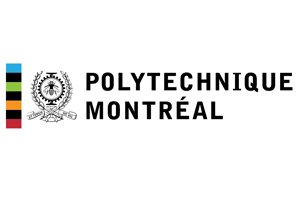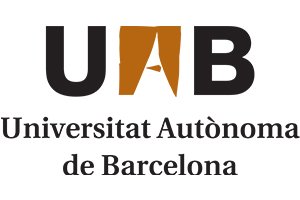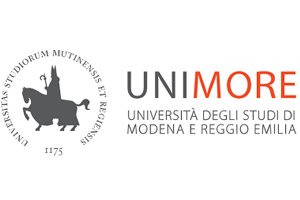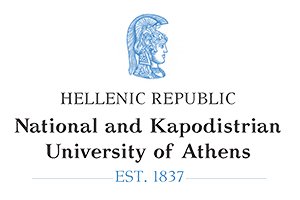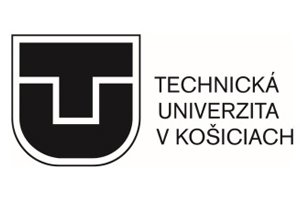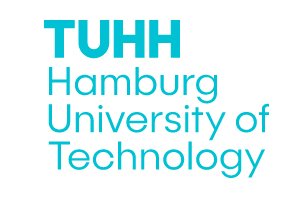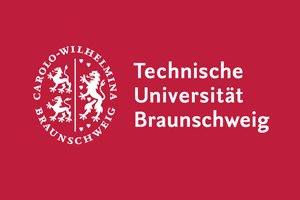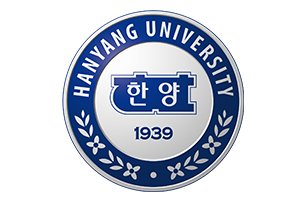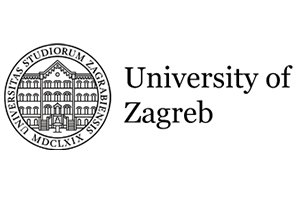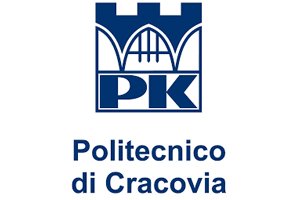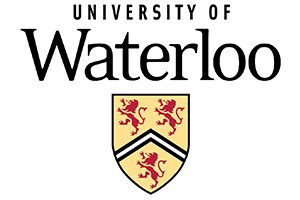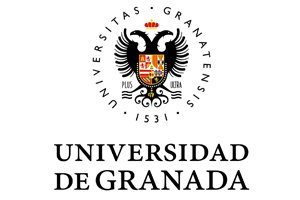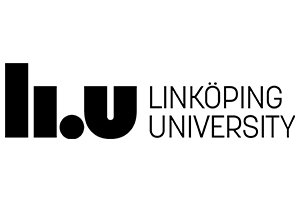Why go abroad?
In a job market-place which is becoming global (in terms of jobs, products, services, research…), it is important to know how to manage the interaction with international teams (differences in languages, methods, culture…). UTC's objective here is to train creative, innovative and "internationally minded" engineers.
This is why the UTC favours international exchanges and trips abroad throughout the 5 years of the curriculum. This allows its students to perfect their education, to open up to the outside world, to get to know new cultures, to practice a foreign language, to acquire new working methods…
What is the ability to work in an international context?
Enshrined in the UTC study regulations since 2018, the following competences in particular are singled out:
- the ability to express oneself in a foreign language,
- the ability to communicate, to assert one's own approaches and to understand and respect those of one's collaborators, clients, foreign partners,
- the ability to deal with new and unexpected situations,
- the ability to integrate into a different social, legal and working environment,
- the ability to work within a multidisciplinary and multicultural team and to lead it,
- the ability to master the information & communication tools and technologies necessary to communicate effectively at a distance.
Types of stays
Study semester
In the framework of one or more study semesters spent abroad, you will generally follow courses with native students in their native language (or in English). These courses are credited in ETCS like the UTC courses. For those who wish to do so, you can take the necessary steps to then undertake an internship in the country of the partner university.
Whether it is for an internship or a semester of study, do not hesitate to consult the scholarships available in the framework of a departure abroad.
The double degree
The UTC, in its choices of departures abroad, also offers the possibility of obtaining a double degree with one of its partner universities. In total, this represents 31 agreements.
To obtain a double degree, the UTC students at the end of their studies (Gx04/05) must successfully complete 1 or 2 semesters of courses in the partner institution and do their internship or their end-of-studies project in the country of the university concerned.
Short-term stays
UTC offers the possibility to enrol for a summer or winter school focussing on a theme related to your training, on a project or on intensive language courses. The duration of the summer or winter school ranges from 1 to 4 weeks depending on the ‘school’ concerned.
Gap year
It is quite possible to take one or more semesters off University in order to carry out a private project which may well have no connection with your chosen course. It is therefore a temporary interruption in training for which you will not gain any ECTS credits.
Internships
UTC students must carry out internships in companies in France and abroad
Application procedure for a study semester or a double degree
The application procedure for a study abroad is the same for all the students of the common core (TC) and the Major branches.
The procedure for double degrees is the same but often has to be formulated a year before, depending on the partnerships.
Go to the ENT (personal study/work digital access), "International Relations" section, then "Going abroad" and the "Application procedure" tab to obtain all the information.
1 – Applying
This first step takes place 6 months or even 1 year before departure for certain destinations known as "anticipated" destinations.
The application is made online (the candidate can formulate an unlimited number of wishes classified in order of preference, accompanied by a choice preference argument).
Go to the ENT (personal study/work digital access) "International Relations" section, then "Rel. Int." and "Departures abroad – application form".
> Once the jury has made its selection, the student must accept or reject this decision within 3 days. Acceptance leads automatically to nomination.
2 – Constitution of the file
The student is responsible for carrying out all the administrative procedures on his/her own. The institution will not be held responsible for the cancellation of the departure for alleged administrative interference.
The student is then contacted by the host university to which he/she must submit his/her application file. At the same time, he/she can apply for a scholarship from the "Scholarships" department of the UTC International Relations Department and completes the other administrative formalities (VISA, accommodation, etc…).
> The student waits for the decision of the partner university. Indeed, his/her application can be refused by the partner if the latter considers the file unsatisfactory.
3 – Finalization of the departure
If the student is accepted by the partner university, he/she sends his/her letter of acceptance to his/her coordinator and to the manager of the "Scholarships" pole of the International Relations of the UTC.
Testimonials
Léo CHAPUIS, GU04 (AMT)
USA, University of Rhode Island – P22 (18 janvier – 31 mai)
(UVs choisies sur place : design urbain, mathématiques, statistiques, géologie environnementale, anglais)
Pourquoi avoir sélectionné cette destination ?
J’ai toujours eu l’envie d’étudier sur un campus américain et de perfectionner mon anglais dans un pays anglophone. Les points forts de cette université sont sa taille – son catalogue de cours (il y a énormément de spécialités disponibles) et sa localisation au sein des USA, entre Boston et NYC.
Comment s’est déroulé votre accueil au sein de l’université ?
Il se déroule très bien, je ne peux rêver de mieux. Les cours sont intéressants, l’ambiance est chaleureuse et je fais de nombreuses activités les week-ends.
Que pensez-vous de la vie sur place ou du coût de la vie ?
La vie sur place est chère, plus qu’en France. Prévoir environ 8000€ (Dont 6000€ pour les logements avec nourriture inclue). Je loge au sein d’un programme international appelé l’IEP. Ne pas payer les frais de scolarité sur place est une réelle chance.
Mes conseils : Veillez à bien prendre en compte le budget important pour la sélection de cette destination. Il faut également faire attention à la date des débuts de cours (24 janvier). J’étais en stage le semestre d’avant (A21) et je n’avais pas synchronisé ma date de fin de stage avec celle du début des cours. Je m’étais calé sur les dates conseillées par l’UTC. J’avais manqué d’informations sur ce point lors de l’établissement de ma convention de stage. Un avenant à la convention avait dû être rédigé. Je conseillerais également de discuter avec les anciens utcéens de cette destination. Les relations internationales sur place sont également très serviables et impliquées.
Conclusion : Je conseille vivement cette destination.
Séverine Lasne, GB06 IAA A21
USA, The University of Rhode Island. Nutrition and food science/ Plant science
Pourquoi avoir sélectionné cette destination ?
Parce que je voulais partir dans un pays anglophone pour améliorer mon anglais. De plus les États-Unis ont toujours été un pays qui m'a attiré. Ce qui a vraiment compté pour moi pour ma sélection, c'était le cadre de l'université. En effet je voulais être assez encadré, ne pas avoir à trouver un logement par moi même et être avec d'autres étudiant. Je voulais aussi une école qui propose des activités. L'université de Rhode Island a un grand campus où il est impossible de s'ennuyer, il y a toujours quelque chose à faire, ou quelqu'un à voir. De plus, elle propose un programme d'accueil avec pleins d'activités pour les étudiants étrangers qui se retrouvent tous dans la même résidence. Et ci il n'y a plus de place dans cette résidence (ce qui a été le cas pour moi) ou si tu ne souhaite pas y aller, tu as accès à une chambre sur le campus dans les différents hall. C'est très différent mais beaucoup plus local et c'est parfait si tu souhaites d'intégrer dans la culture américaine. Et les hall sont occupés par d'autres étudiants donc encore une fois tu n'es jamais seule. Ensuite, après avoir choisi le cadre j'ai bien sur aussi choisi cette université pour les cours qu'elle proposait.
Comment s’est déroulé votre accueil au sein de l’université ?
Vraiment très bien déroulé puisque comme je l'ai expliqué, il y un programme dédié pour les internationaux avec un super staff, qui viens te chercher à la gare ou à l'aéroport, qui t'emmène jusque dans ta chambre. Pour la première semaine tu as une semaine d'intégration avec un planning et un programme prévu pour les premiers jours.
Que pensez-vous de la vie sur place ou du coût de la vie ?
Les universités américaines sont très chers. Comme indiqué dans les premiers papiers qu'on dois fournir, il faut une preuve de ta banque que tu pourras payer tous les frais. Le logement et l'accès au restaurant du campus sont très chers presque $6500 pour 4 mois mais une fois que tu as payé ça, avant d'arrivé, là bas il n'y a presque aucun frais. En effet, en ayant payer pour le logement et la formule voulu pour les repas, on a accès à toutes les infrastructures du campus(la salle de sport, la piscine, les dinning, …). On peut aller au self, en illimité et on a aussi le droit à ce qu'ils appellent des "grab and go", (10/semaine compris dans la formule il me semble) avec lesquelles on peut acheter de la nourriture à "emporter" comme un café à la BU des pizzas, des sushis,… On peut donc s'en sortir en ne payant presque rien de plus que ce qui a déjà été déboursé Presque, parce que certains cours imposent l'achat de livres qui peuvent parfois être très chers, et d'autres cours veulent que tous les étudiants soient inscrits à des plateformes en ligne souvent payantes. Après pour profiter à fond de l'expérience, on est amené à dépenser plus, par exemple pour s'inscrire dans un club de sport, pour voyager, pour assister à des matchs de NBA, … Et c'est vrai que c'est assez cher.
Mes conseils : Ne pas hésiter et de foncer ! Si l'université propose des cours qui correspondent au cursus du candidat, et qu'il a les moyens financiers de pouvoir y aller il faut y aller. Le cadre est vraiment génial, on se sent chez sois très rapidement, l'université est très bien situé, dans la forêt, à seulement quelques minutes de la plage, et proche de très grande ville comme Boston ou New York. Je recommanderai juste d'avoir déjà 21 ans, parce que sinon tu n'es pas considéré comme majeur là bas et tu peux pas accéder au bar, boite, …
Marie MICOLON, GB Filière BM (Biomédicale)
Canada, Polytechnique Montréal, A21
(Uvs choisies sur place : Programme court en ingénierie, Génie Biomédical)
Pourquoi avoir choisi cette destination ?
Cette destination est réputée à l'international et les cours proposés correspondent bien à un cursus biomédical de l'UTC. De plus, Montréal est une ville très accueillante, chaleureuse et étudiante. Elle a un lien fort avec la France (beaucoup d'expatriés, langue française), ce qui facilite l'arrivée sur le continent américain, par exemple pour un premier échange.
Comment s’est déroulé votre accueil au sein de l’université ?
L’accueil au sein de l’université était très bien. L'équipe en charges des étudiants étrangers a envoyé des vidéos de conseils pour les documents administratifs et pour le choix des cours. Une association étudiante organise aussi l'accueil des nouveaux étudiants (semaine d'intégration, comme à l'UTC!), ce qui permet de rencontrer beaucoup de monde et de rapidement s'intégrer.
Que pensez-vous de la vie sur place ou du coût de la vie ?
La nourriture et les restaurants sont légèrement plus chers qu'en France, le logement équivalent voir moins cher qu'à Compiègne.
Mes conseils : Un bon GPA (dans mon cas) ou bien montrer dans lettre de motivation qu'on s'est renseigné sur l'école et ses activités de recherche.
Thomas Lapierre, GB
Spain, Universitat Autonoma de Barcelona, P22
(Uvs choisies sur place: Programme court en ingénierie, Génie Biomédical)
Pourquoi avoir sélectionné cette destination ?
Elle est en Espagne et je voulais améliorer mon Espagnol mais aussi parce que j’avais la possibilité de choisir mes cours comme à l’UTC, dont certains qui n’existent pas à l’UTC et enfin, car Barcelone reste une ville très touristique et offre beaucoup d’activités.
Comment s’est déroulé votre accueil au sein de l’université ?
L’accueil sur le campus a été très bien réalisé par l’ESN (erasmus student network) en revanche l’accueil au sein de la faculté de biosciences a été plus compliqué. Par exemple, l’utcéenne qui est venue en Erasmus avec moi a reçu sa lettre d’acceptation 1 mois après le début des cours. (L’Université à subit une attaque informatique qui leur a fait perdre beaucoup de leurs données mais cela datait déjà de Octobre, soit 4 mois avant notre arrivée). L’administratif là-bas est excessivement compliqué et les choses souvent obtenues au prix de nombreuses relances. Ce qui rend le premier mois d’adaptation assez stressant. D’autre part, la faculté de Biosciences propose des programmes préconstruits, si bien qu’en les mélangeant nous devons consulter les emplois du temps pour vérifier que tous nos cours, et surtout nos examens, sont compatibles entre eux sur les 5 mois (J’ai 5 emplois du temps différents ce qui m’a valu de rater quelques cours).
Que pensez-vous de la vie sur place ou du coût de la vie ?
Le coût de la vie est le même qu’en France, mais il y a la possibilité de se loger à un tarif très abordable à la Vila Universitaria qui est à dix petites minutes de marche de la faculté (ceci ne vaut que pour les colocations car une chambre seule coûtera à l’inverse cher). On peut aussi se loger sur Barcelone mais cela implique 35 minutes de train pour se rendre sur le Campus (Si vous faites ce choix je vous recommande de prendre un abonnement qui vous coûtera moins cher). Sur ce même campus, il y a d’ailleurs plusieurs cafétérias dans lesquels il est possible d’acheter un repas pour environ 6€.
Mes conseils : Autre difficulté, le catalan. Bien qu’il soit possible de parler Espagnol avec tout le monde, le catalan est vraiment la langue principale. Si bien que les professeurs parlent souvent en catalan en cours et les supports sont parfois en catalan indépendamment de ce qui est annoncé sur la présentation de la matière. Les informations nous sont toutes parvenues au compte-goutte alors, si vous avez le moindre doute n’attendez pas et posez immédiatement la question à tous ceux susceptibles de connaitre la réponse. J’espère que ce ne sera que pour notre semestre mais il n’a pas toujours été agréable. Avec un bon niveau d’espagnol (savoir s’exprimer au moins sur tout ce qui touche à la vie courante), on s’en sort bien. Il y a beaucoup de choses que je n’ai pas mentionnées parce qu’elles se déroulent bien dans l’ensemble. Bien que cela puisse sembler le cas, le séjour est loin d’être catastrophique mais je ne peux pas cacher que par moment il a été frustrant. Je vous conseille vivement de demander des conseils à des Utcéens qui sont passés par là et j’espère honnêtement que votre coordinateur/trice sera un peu plus présent/e que la nôtre.
Camille Laporte, TC04 (future GU)
Italie, UNIMORE Université de Modène et de Reggio d'Émilie , P22
Pourquoi avoir sélectionné cette destination ?
L'université possède un beau département d'ingénierie. Je suis partie dans les cursus liés au GU mais le département mécanique est énorme. J'ai choisi Modène pour apprendre l'italien, le choix des cursus (pas évident de trouver des matières de GU) et sa position en Italie parfaite pour voyage à la journée ou pour un week-end.
Comment s’est déroulé votre accueil au sein de l’université ?
L'accueil est plutôt bien fait même si il y a des moments de flou. Il nous laissent nous débrouiller. Les professeurs sont globalement accueillants et proposent de nous aider si besoin. La vie sur place est sympa, c'est une petite ville, certes, mais qui possède tout ce dont on a besoin pour vivre et s'amuser. Le coût de la vie est par contre assez élevé. Le logement est très difficile à trouver et il ne faut donc pas être exigent.
Mes conseils : Cherchez un logement à l'avance, sans être trop exigent. Si il est assez bien placé et à un prix raisonnable ce sera déjà incroyable. Ensuite c'est important de participer aux événements ESN, c'est le meilleur moyen de se faire des amis. Pour les cours, dans l'idéal, le mieux c'est de demander conseil à des gens qui ont déjà fait le cursus histoire d'être guidé dans les choix de cours. Un dernier conseil, essayer de se mettre à l'italien rapidement, ça aide.
Julien Jatyka, GI IASD
Grèce, NKUA , National and Kapodistrian University of Athens faculté de mathématiques A21
Pourquoi avoir sélectionné cette destination ?
Pouvoir approfondir mes connaissances en sciences des données (cours de statistiques non paramétriques, cours de machine learning, etc) mais également pour la ville (climat, vie peu chère, beaucoup de destinations intéressantes).
Comment s’est déroulé votre accueil au sein de l’université ?
Avec les autres étudiants de la faculté, nous avions eu un responsable sur place qui s'est occupé de notre suivi, qui nous a très bien accompagné tout du long de notre période sur place pour la sélection des cours, pour gérer l'administratif et assurer la communication avec l'université. La ville est très agréable, très étudiante et les habitants très accueillants. A noter que c'est une destination qui attire beaucoup d'étudiants français et allemands. Logement dans une colocation de 3 pour 350€ par mois, les logements tournent souvent autour de ce prix là en colocation en fonction des quartiers de la ville. Pour se nourrir c'est plutôt équivalent à la France.
Mes conseils : Se renseigner sur les quartiers car certains sont plus ou moins vivants que d'autres. Pour ma part j'étais dans le quartier d'Exorcheia. Aussi faire attention à l'emplacement de l'université, car le campus est divisé par facultés et celle de mathématiques est excentrée.
Guillaume DEMET, IM05-MARS
Slovaquie, TUK Technical University of Kosice, P21
(Uvs choisies sur place: Automation and Robotics, Electrical Engineering for Automation, Engineering Materials, Sensor Systems, Technical Analysis.)
Pourquoi avoir sélectionné cette destination ?
En cette période, seuls les voyages en Europe étaient autorisés. Je ne voulais pas un pays d'Europe de l'Ouest pour voir d'autres cultures. Enfin, c'est une des universités qui propose le plus de cours intéressants (de mon point de vue) pour la spécialisation mécatronique.
Comment s’est déroulé votre accueil au sein de l’université ?
L'accueil dans l'université en elle-même s'est bien passé et l'association ESN de l'université est très présente et force de proposition d'événements ! Les prix alimentaires ne sont plus que légèrement inférieurs aux nôtres (alors que le smic n'est que de 600€ environ). Grâce à ESN, des activités sont proposées chaque week-end / deux semaines. Beaucoup de randonnées et de voyages en train (seulement 1€ pour les étudiants, peu importe le voyage, même de plus de 6h).
Mes conseils
Je déconseille fortement le dortoir de l'université parce que :
(1) Il est extrêmement mal positionné (à 45min de bus avec changement de l'université).
(2) Il est juste en face du « plus grand ghetto rom d’Europe », il suffit de traverser la route pour y être !
(3) Je ne pense pas avoir des goûts spécialement luxueux mais je pense que même les logements sociaux français sont en meilleurs état !
Laura MIGUEL, GI02
Allemagne, TUHH Technische Universität Hamburg-Harburg, P22
(Uvs choisies sur place: cours des bachelor « Computer science » et « Data science »)
Pourquoi avoir sélectionné cette destination ?
Je voulais travailler mon allemand, mais quand même avoir la possibilité de prendre principalement des cours en anglais (on peut se débrouiller pour y aller sans parler un mot d'allemand). Les quelques retours des étudiants sur le site de la DRI étaient très positifs sur l'accueil des étudiants et l'intérêt culturel de la ville. Je tenais à aller dans une ville connue, mais pas aussi grande que Berlin. Un autre point est que le décalage avec les semestres de l'UTC permet d'avoir une vraie pause entre le semestre d'automne et de printemps.
Comment s’est déroulé votre accueil au sein de l’université ?
Une semaine avant la rentrée, pleins de vidéoconférences ont eu lieu sur les différentes démarches à faire (inscription aux cours, cours de langues, la vie à Hambourg, inscription à l'université, inscription auprès de la ville…). Il y a à la fois des événements organisés par la cellule d'accueil des étudiants étrangers de la TUHH, mais aussi par l'ESN d'Hambourg. Le coût de la vie est relativement le même, et de même pour la vie sur place. La principale différence est que Hambourg est beaucoup plus grande que Compiègne et l'université n'est pas dans le coin le plus sympa d'Hambourg, mais il y a un bon réseau de transport et une carte de transport nous est fournie par l'université (le semesterticket), donc on peut se balader partout sans problème. Un autre point est que la météo fait des siennes (il peut pleuvoir, l'instant d'après faire grand soleil, puis neiger 10 minutes plus tard).
Mes conseils
Postulez pour une chambre en résidence universitaire ! Studierendenwerk Hamburg, c'est à peu près l'équivalent de l'Alesc. Cela permet d'être relativement proche de l'université, mais surtout d'être dans des résidences avec d'autres étudiants internationaux probablement de la même université, et avec parfois des étudiants qui sont là depuis plus d'un semestre. A noter que contrairement à l'Alesc, la cuisine et la salle de bain sont partagées (dans le cas de la résidence Neuwiedenthal où je suis, la cuisine est partagée à 6 et la salle de bain à 4). Attention sur les cours marqués "en anglais si un étudiant le demande", ce n'est pas toujours le cas (le professeur peut décider de tout de même faire le cours en allemand). Il n'y a pas de cours intensif d'allemand au début du semestre de printemps, et il se peut qu'il n'y ait pas de cours d'allemand au "bon" niveau (ce semestre, le niveau maximum est B2.2).
Emmanuelle DE BRESSY – partie en TC04 en P21
Allemagne, TUBS Technische Universität Braunschweig
Pourquoi avoir sélectionné cette destination ?
Je suis partie en TC04 à Braunschweig sachant que je voulais m’orienter en Génie Biologique à mon retour à l’UTC. J’ai donc choisi cette destination notamment pour la variété de choix des cours : l’université accueille en effet toutes les branches de l’UTC. Je souhaitais également améliorer mon niveau d’allemand (langue que j’avais apprise au lycée).
Comment s’est déroulé votre accueil au sein de l’université ?
Sur place, j’étais inscrite en « Bachelor Maschinenbau », mais dans les faits j’ai pu prendre des matières d’autres Bachelors, même si cela n’était pas évident au niveau administratif. Malgré le fait que je sois partie pendant la crise du COVID, j’ai été bien accueillie (autant que possible étant donné les conditions). La personne en charge de l’accueil des étudiants étrangers de l’université est très à l’écoute et disponible. Même s’il était difficile de rencontrer d’autres étudiants car les cours étaient en distanciel, j’ai pu aller à plusieurs événements de l’association ESN qui m’ont permis de rencontrer d’autres étudiants étrangers notamment, et de m’intégrer. La vie sur place est très agréable, particulièrement au printemps car on peut profiter des nombreux parcs de la ville. Il y a beaucoup d’activités à faire et la ville est plutôt bien située pour visiter le reste de l’Allemagne. Au niveau du coût de la vie, il est très semblable au coût de la vie en France. Un des avantages au niveau du transport est que la carte étudiante (moyennant les frais d’inscription à l’université) rend les transports en commun de la ville et les trains régionaux gratuits.
Mes conseils
Il faut parler un minimum allemand avant de partir car globalement tous les cours sont en allemand. Mais les professeurs sont en général assez compréhensifs avec les étudiants étrangers et seront prêts à vous aider si besoin. Pas d’inquiétude si votre niveau d’allemand n’est pas au top, on s’habitue vite ! Pour s’intégrer, je conseille d’aller aux évènements ESN pour rencontrer du monde. Il y a aussi beaucoup de français de l’UTC qui partent à Braunschweig chaque semestre et certains qui sont là pendant plusieurs semestres pour leur double-diplôme. Ça peut être rassurant au début si on se sent un peu perdu. Attention aux (nombreuses) procédures administratives, notamment l’inscription aux examens qui est très importante mais pas super facile, il vaut mieux s’y prendre à l’avance.
Damien Girond, IM04 filière MPI
Corée du Sud, Hanyang University
Pourquoi avoir sélectionné cette destination ?
J'ai intégré Hanyang University, pas de programme spécifique, (quasi) tous les cours proposés sont accessibles, j'ai eu l'occasion d'intégrer des cours de l'école d'ingénieur et de l'école de commerce de Hanyang. J'ai sélectionné cette destination principalement car j'étais très attiré par le pays et sa culture. La renommée de l'école était aussi un critère. Sa proximité avec le centre de Séoul en faisait mon premier choix parmi les écoles Coréennes.
Comment s’est déroulé votre accueil au sein de l’université ?
Mon expérience globale à l'université fût particulière à cause du Covid. Je n'avais aucun cours en présentiel, pas de cérémonie d'accueil, et je n'avais pas accès aux classes et infrastructures sportives du campus. Il n'y a eu que 2 sessions de présentation du campus quand je suis arrivé auxquelles je n'ai pas pu m'inscrire. La vie sur place est très plaisante (beaucoup de lieux de culture, de divertissement, de restauration etc). Le coût de la vie à Séoul est globalement élevé, il faut compter entre 500 et 600€/mois (eau, elec, chauffage, internet inclus) pour une chambre étudiante en dortoir (7–10m²). Le coût global des produits est plus élevé qu'en france, et celui de la nourriture également (voir beaucoup plus élevé pour certians produits importés). Les restaurants sont peu chers comparés à la France et il est dans la culture du pays de manger régulièrement à l'exterieur. Il faut compter au global un budget d'au moins 1000€/mois (hébergement + vie sur place).
Mes conseils
En plus des infos précédentes je conseille vivement d'intégrer un dortoir d'étudiants internationaux pour vivre la meilleure expérience à Séoul, et notamment pour faciliter les rencontres avec d'autres étudiants. Dans mon cas j'ai pu grandement améliorer mon anglais, obtenir de l'aide pour les cours, et avoir une bonne vie étudiante. Enfin, pour Hanyang University en particulier, je recommande grandement d'être attentif pour le choix des cours. La session a lieu au milieu de la nuit et c'est au premier arrivé, premier servis. Les retardataires voient leur choix être très limité.
Geist Lolita, GB – IAA (A21)
Croatie – University of Zagreb
Spécialité (faculté) : Food Technology and Biotechnology
Pourquoi avoir sélectionné cette destination ?
Dans un premier temps, je souhaitais une destination où les cours sont en anglais. Ensuite, le point le plus important était le contenu des cours proposés afin qu’il soit en adéquation avec mon projet professionnel. L’université de Zagreb propose des cours IAA que je n’avais pas suivi à l’UTC. De plus, il me fallait 28 crédits et toutes les destinations ne proposent pas suffisamment de cours différents adaptés à ce que l’on recherche. Le point le moins important, mais à préciser, est la localisation et le pays en général.
Comment s’est déroulé votre accueil au sein de l’université ?
Lors de l’arrivée à Zagreb, il faut aller dans le bureau de la coordinatrice des relations internationales dans la faculté PBF afin de régler les documents administratifs. Cela peut prendre un peu de temps. Concernant l’intégration, l’université proposait un programme facultatif avec des conférences, une visite de la ville, un concert d’orgue et une présentation de l’université.
La vie sur place est agréable, il y a beaucoup d’espaces verts et les personnes sont accueillantes. Le seul problème qui peut arriver est la langue. En effet, certaines personnes ne parlent pas anglais, notamment si vous allez au marché. Le coût de la vie est très abordable, en particulier pour la nourriture. Les habitants font majoritairement leurs courses au marché (viandes, poissons, fruits et légumes). Le plus grand se situe proche de la grande place Jelacic de Zagreb. Je précise que la monnaie en A21 était la couronne croate, ce qui devrait changer d’ici peu.
Mes conseils : Dans un premier temps de bien regarder les mails de l’université car certaines démarches sont à faire en avance. Ensuite, concernant les TSH, il n’y en a pas forcément qui sont adaptées à notre parcours dans la faculté PBF. Cependant on peut trouver des solutions sur place car il est possible de suivre une TSH dans une autre faculté. Il faut toutefois préciser que les démarches de recherche sont à faire principalement seul. Le plus déroutant en arrivant c’est de ne pas avoir d’informations ou de mails pour les UV choisies. Les enseignants contactent les étudiants inscrits assez tard dans le semestre et chacun lorsqu’ils le souhaitent suivant leur organisation. Pour les cours où peu d’étudiants sont inscrits, il faut parfois relancer l’enseignant par mail. En cas de doute, il est toujours possible de demander à la coordinatrice des relations internationales. Je conseille d’ailleurs d’aller la voir directement dans son bureau plutôt que d’envoyer un mail. Concernant le logement, les résidences étudiantes proposées ne sont pas très confortables dans le sens où les chambres sont partagées à 2 et la salle de bain à 4. Les cuisines sont communes. Je pense que le mieux est de faire une collocation (soit avec les autres étudiants de l’UTC, soit avec d’autres personnes via internet). Il y a également des logements privés dans des prix abordables (en comparaison aux loyers français). On m’avait conseillé pour les logements privés de passer par des agences (sites internet ou pas). Zagreb est très bien situé pour voyager et visiter d’autres endroits. Cette ville est frontalière à plusieurs pays et il est assez facile de voyager par exemple en flixbus pour un prix abordable. Je déconseille les trains qui sont souvent en retard. Beaucoup d’évènements et de voyages sont aussi organisés par l’ESN. De nombreuses informations concernant la vie sur place ou encore comment trouver un logement peuvent être trouvées sur le site internet de l’université.
Charlotte Fromont / GI – ISI / Erasmus en A21
Politechnika Krakowska, Faculty of computer science and télécommunications
Pourquoi avoir choisi cette destination ?
J'ai sélectionné cette destination pour les cours qu'elle proposait car ils correspondaient à ma branche (cryptographie, programmation parallèle…) mais également car je ne connaissais pas l'Europe de l'est. J'avais déjà réalisé un Erasmus en Espagne et je souhaitais découvrir une culture complètement différente dans un pays où le coût de la vie n'est pas trop élevé (en comparaison avec les pays comme la Norvège ou la Suède). En résumé, les points forts ont été les cours, le cout de la vie, la ville (Cracovie est la capitale historique, c'est donc une grande ville, qui bouge et est assez cosmopolite).
Comment s’est déroulé votre accueil au sein de l’université ?
L'accueil s'est très bien déroulé. Les coordinateurs sont très réactifs et disponibles pour répondre aux questions des étudiants. La vie est très agréable (il faut cependant aimer le froid et la neige en y allant au semestre d'automne). Cracovie est une ville qui bouge beaucoup, il y a de nombreux Erasmus et le coût de la vie est vraiment pas cher (il est possible de traverser le pays pour moins de 10 euros et de manger dans un bon restaurant pour 7 euros). La ville est propre et sûre et le patrimoine culturel est extrêmement riche.
Mes conseils
Si possible, ne pas louer d'appartement en ligne mais se rendre sur place (et loger dans une auberge de jeunesse ou airbnb le temps de trouver un logement) pour visiter les appartements. Il y a énormément d'arnaques concernant les logements (surtout pour les Erasmus), veiller si possible à ce que le contrat soit écrit en anglais (et non uniquement en polonais). Et prendre des cours de polonais est un plus si vous souhaitez voyager en dehors des grandes villes polonaises (on peut bien sûr se débrouiller sans mais cela peut rapidement devenir laborieux).
Jolicoeur Lise, GI 05 ISI
Université de Waterloo (University of Waterloo), Faculté de Mathématiques
Pourquoi avoir choisi cette destination ?
Mon semestre d’échange a lieu à l’Université de Waterloo dans la ville de Waterloo en Ontario, Canada. J’étais inscrite dans la faculté de mathématiques mais les cours que j’ai suivis étaient très variés, principalement en ingénierie et optimisation. Les détails et mon avis sur les cours que j’ai eu l’occasion de suivre sont sur le site de la DRI (https://rex.dri.utc.fr/app/). J’ai souhaité partir dans cette université tout d’abord parce qu’elle est au Canada: ayant déjà fait un semestre d’études à Montréal auparavant, je savais que le Canada serait une destination que j’apprécierais et dont le rythme de vie me conviendrait. Je souhaitais également partir dans une ville anglophone avec des cours en anglais, ce qui est le cas en Ontario. L’Université de Waterloo s’est particulièrement démarquée grâce à sa notoriété dans le domaine de l’ingénierie et l’intérêt que j’avais pour certains cours qu’ils proposaient. Sa notoriété me permet d’avoir une expérience enrichissante et de valeur dans mon parcours universitaire, et les cours qu’ils proposaient s’alignaient parfaitement avec mes intérêts et ce dans quoi je souhaitais me spécialiser. Leur choix de cours est très variés, et la possibilité de prendre des cours dans plusieurs facultés m’a également attirée.
Comment s’est déroulé votre accueil au sein de l’université ?
Mon arrivée à l’université s’est très bien passée, même si le fait que je sois arrivée en période de Covid n’a pas simplifié les choses. La coordinatrice des étudiants en échanges nous envoyait souvent des informations et nous pouvions très facilement poser des questions en cas de doute par le biais d’un groupe de discussion Teams. Les étudiants en échanges font beaucoup de choses ensemble en dehors des cours donc l’ambiance est très bonne. Il est possible de trouver à se loger pour un montant très raisonnable en collocation ou dans les résidences étudiantes. Le coût de la vie est relativement élevé, surtout en matière de logement, mais les conditions sont comparables à celles en France. L’Université de Waterloo est un excellent choix de destination. La ville de Waterloo en elle-même est très agréable, centrée sur les universités et donc les étudiants. Les cours et professeurs sont excellents, toujours à l’écoute en cas de difficultés.
Mes conseils
Je recommande sans réserve à tous ceux qui souhaitent ajouter une expérience internationale à leur parcours universitaire. Le Canada est une destination agréable, surtout venant de France, et c’est un bon moyen d’améliorer son anglais également. En période normale (hors Covid), il n’y a pas besoin de visa pour une durée de résidence aussi courte donc le départ est très facile administrativement, ce qui est un vrai avantage.
Elliot Touvet – IM 02
Universidad de Granada
Je suis arrivé à Grenade en février 2023, avant le début des cours, cela m'a permis de découvrir cette magnifique ville comme un touriste. J'avais le niveau B2 (LA23), je me suis vite rendu compte qu'il ne m'aidait pas beaucoup à la compréhension ! L'accent andalou est vraiment compliqué au début, et l'espagnol de l'école n'est pas le même que celui que l'on parle. S'en suit le début des cours, en espagnol pour ma part, mais il est possible d'en choisir en anglais, dans toutes les facultés de la ville (que ce soit en science ou en philosophie). Il n'y a pas de système de compatibilité de l'emploi du temps, donc il faut s'attendre à changer certains cours les premières semaines.
Je fais mes premières rencontres avec des Erasmus, qui parlent un espagnol plus simple et plus compréhensible (j'ai évité ceux qui parlaient seulement anglais), et l'échange de culture débute. Le semestre se déroule bien, malgré la différence de pédagogie (pas vraiment de TDs) et ma peur de ne pas tout valider : j'avais 4 UVs et un emploi du temps peu chargé. Je rencontre des étudiants du monde entier, Grenade étant l'une des destinations les plus prisées en Erasmus, et j'améliore mon espagnol à grand pas, ce qui me permet de me faire des amis locaux. Cependant, très peu au sein même de la faculté, l'ambiance des cours étant assez froide, il n'y a pas vraiment de lieux communs, d'assos.
Mon semestre est entrecoupé de voyage en Andalousie, en Espagne, au Portugal et au Maroc, en petit groupe ou organisé par les entreprises Erasmus : il y en a 2 (Best Life Experience er Emycet), vous y inscrire permet de participer à beaucoup de soirées sans payer.
La ville est accueillante et très vivante : petit centre-ville, tout se fait à pied, montagne juste à côté, beaucoup de touristes quand l'été approche, la vie se fait beaucoup la nuit, dans des bars, des boites de nuit… Grenade est clairement l'une des meilleures destinations d'échange !
Je repars de cette ville avec un niveau d'espagnol courant (le risque est de rester avec des français), et en ayant fait une expérience incroyable qui m'a ouvert l'esprit sur le monde entier. J'ai validé mes 4 UVs grâce à un travail plus fourni avant les examens.
Paul Delmas – GP
Linköpings University
Become an UTC ambassador
Mobility assistance
If you are going to a foreign country as part of your training at UTC, you can obtain financial aid via:
- an AIM grant from the MESR
- FITEC scholarships
- a UFA scholarship
- DAAD scholarships
- Italian scholarships
- a MERMOZ scholarship
- an Erasmus+ internship scholarship
- an Erasmus+ stay grant
Go to the ENT (personal study/work digital access) "International Relations" section, then "International scholarships" to obtain all the information.




